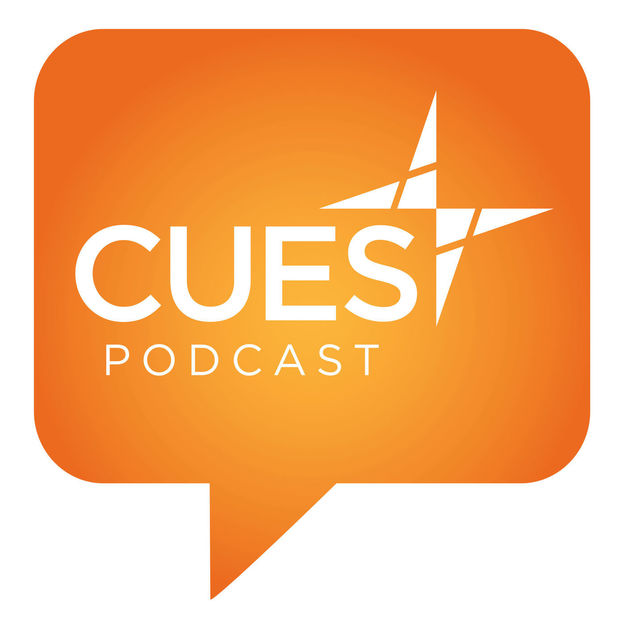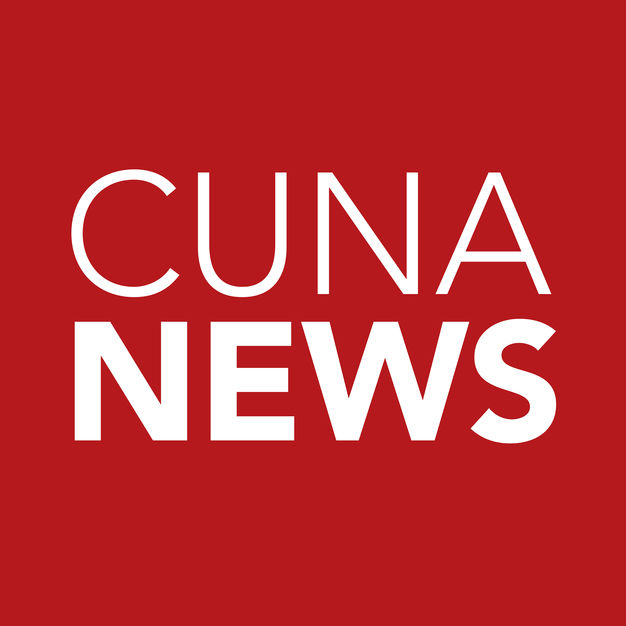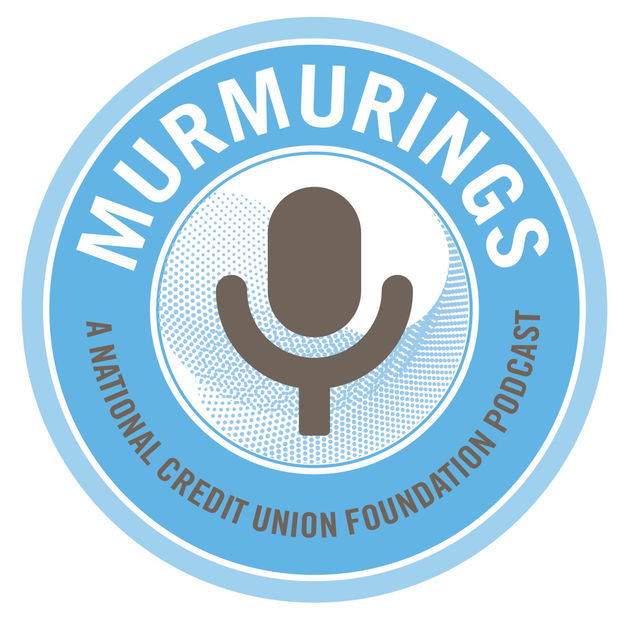
CUES Podcast
CUES
Welcome to the CUES Podcast! Here we’ll talk to industry and cross-industry experts to gain perspective on trends and topics relevant to you and your role at your credit union. Not a CUES member? Learn more and sign up at cues.org/membership.
- 51 minutes 11 secondsCUES 164: What Does It Take to Be a Great CEO?
CUES Podcast 164: What It Takes To Be a Great CEO
In this CUES Podcast episode, host Carla Kalogeridis welcomes guests Deedee Myers, Ph.D., CEO of DDJ Myers, and Peter Myers, Senior Vice President at DDJ Myers, to discuss what it takes to be a great CEO in the credit union industry.
The conversation covers several key aspects of CEO selection, onboarding, and performance. You’ll discover:
- The process of finding and selecting a CEO, including vetting internal vs. external candidates
- Differences in interviewing internal and external candidates
- The importance of a robust onboarding process for new CEOs
- Characteristics that distinguish good CEOs from great ones
- Regular practices that high-performing CEOs engage in
Deedee and Peter share insights on:
- The evolving landscape of CEO searches
- The importance of emotional intelligence and strategic thinking for CEOs
- How boards can prepare for CEO transitions years in advance
- The critical first 90-120 days for a new CEO and building relationships with staff, board members, and the community
- Five key characteristics of exceptional CEOs, including having a clear vision and putting "points on the board"
- Regular practices CEOs should engage in, such as semi-annual development conversations with executives and regular strategy deep-dives
"Never stop learning. Always be curious. Be open. Be hungry," Deedee advises aspiring and current CEOs.
This episode provides valuable insights for credit union professionals interested in leadership development, board members involved in CEO succession planning, and current CEOs looking to enhance their performance.
Links for this show:
21 October 2024, 6:00 pm - 48 minutes 22 secondsCUES 163: Augmenting People Helping People with AI
In this episode of the CUES Podcast, guest Lee Wetherington, senior director of corporate strategy at CUES Supplier member Jack Henry, discusses the impact that artificial intelligence is already having on credit unions. Two areas that will be improved by AI are member experience and service and fraud mitigation, he says.
“The top two use cases are member service—specifically, in short to mid-term, generative AI assist technologies to real people in the credit union who are fielding members’ moments of need in real-time through digital channels through the mobile app, etc,” Wetherington says. “The number two use case … is the application of machine learning to fraud detection, fraud prevention and fraud mitigation. Using new generative AI pattern detection technologies is being brought to bear and that space in more new and powerful ways.”
Lee is the senior director of corporate strategy at CUES Supplier member Jack Henry. He directs the development of actionable insights, forecasts and strategy for Jack Henry and the financial services industry at large. To this end, he guides a team of analysts who track the trends and implications of the emerging technologies disrupting and transforming the banking industry. You may have seen Lee at a conference as he delivers keynotes nationwide, focusing on opportunities and challenges in fintech, payments and digital banking.
In the show, Wetherington also discusses:
- What are the top use cases for AI right now?
- Where should credit unions start to dip their toes into using AI?
- What are the potential cost savings and revenue-generating opportunities for credit unions through AI adoption?
- Are credit union employees going to lose their jobs to AI?
“I see generative AI … as more of a leveler of the playing field, between credit unions and the biggest banks in the country,” he says.
Links for this show
- Transcript
- Jack Henry’s 2024 Strategy Benchmark
- Making AI Work for You: 10 Steps for an Organizational Approach
- Lee Wetherington’s LinkedIn profile
- What Is ChatGPT Doing ... and Why Does It Work? by author Stephen Wolfram
- jackhenry.com
30 May 2024, 5:00 pm - 25 minutes 42 secondsCUES 162: Exciting Times Ahead With Instant Payments
In this episode of the CUES podcast we talk about payment trends and strategies with guest Tede Forman, president of payment solutions at CUES Supplier member Jack Henry. He leads the company’s strategy and solutions for payments and spoke about why Jack Henry actively participated with the Federal Reserve to help develop its real-time payments network, FedNow.
“We wanted to offer this opportunity to all of our community financial institutions (and) specifically credit unions right from the start to give them the horsepower to drive innovation,” Forman says. “We also saw this as the foundation for meeting current needs, but also building future payment solutions.
“There's going to be a lot of innovation and transformation with instant payments, from P2P to business. … (We knew) getting in on the front end would help the credit union understand the operational processes and also (help) think through use cases that could be leveraged in the credit union space with instant payments.“Probably around 30-33% of all the FIs that are live on the FedNow rail are actually a Jack Henry client,” he adds.
In the show Forman also discusses:
- the most common questions about FedNow;
- common risks or barriers that make credit unions hesitant to implement instant payments;
- data about the use of and demand for instant payments;
- how instant payments can help credit union members improve their financial health;
- a vision for the future of instant payments;
- and much more.
Links for this show:
- Transcript
- Email Tede Forman
- Jack Henry: Payments Trends and Strategies
- The Faster Payments Council’s Operational Considerations for Instant Payments Receive-Side Primer
24 April 2024, 5:00 am - 25 minutes 1 secondCUES 161: Human-Centered Leadership
In this episode we talk about human-centered leadership. Returning to the show as our guest is CUES’ own VP/Consulting Services Lesley Sears, who heads up our CUES Consulting offerings.
She explains the difference between a business-centered culture and a human-centered one and shares why centering your people will ultimately be better for the business.
“In business-centered leadership, you're primarily focused on the numbers. You're focused on the ways of business that are outside of the people,” Sears says. “Are we strategically aligned? Are we getting our numbers? What is the data showing? What's the profitability?”
“Then the counter to that is digging into and aligning leadership with what's best for the people who are getting the business done,” she adds. “They're the ones that are making the credit union successful. How can we develop our organization to focus on them first, and then let the success of the credit union come from that people focus?”
In the show Sears also discusses:
- the difference between human-centered and business-centered leadership;
- why a human-centered approach to leadership works;
- what human-centered leadership looks like in action;
- signs that your workplace is struggling to be human-centered; and
- ways to evolve your culture.
Links for this show:
- Transcript
- Caveday.org: The resource that is saving Lesley’s life right now by helping her find time to focus on deep work.
- From Fast Company: 7 Qualities of the Human-Centric Workplace for Innovative Leaders
- CUES Consulting
- Purposeful Talent Development blog posts, podcasts and videos by Sears
22 March 2024, 5:00 am - 23 minutes 41 secondsBe Better at Business Lending in 2024
Knowledge is key to success in business lending, according to Jim Devine, co-founder, CEO and chairman of Hipereon, a financial training company based in Washington state, and lead faculty member for CUES’ School of Business Lending, which starts April 1.
In this latest episode of the CUES Podcast, Devine says his aim with the school each year is to “make sure ... that everybody going out the back door has the foundational skills that give them confidence that they can take a set of financial statements from a prospective borrower, do a diagnostic assessment of the performance of that business, link it to their debt service coverage policies and guidelines, and determine whether” they’re willing, as a fiduciary, to let their members’ money fund the credit request.
In this show, Devine demonstrates that his own knowledge of business lending runs deep—both in terms of the structures and procedures credit unions need to have in place to do it well and the impacts that the economy and other factors have on credit unions’ success with it.
The show opens with a discussion of the business lending environment and what to look out for in 2024, including interest rates and the repricing of loans. The show also gets into the importance of using analytics well to best determine if credit should be granted to a particular applicant.
“You’re not trying to figure out a way to say, ‘yes,’” Devine says in the show. “You're trying to figure out whether yes is the right answer. And again, in order to do that, you have to have the analytical skills to do it.”
Devine also makes the case that credit unions need to consider how to broaden their business lending portfolios to also include loans for business operations.
“People are going to have to start looking at the feasibility of figuring out how to make more operating loans to operating businesses and not have such a huge concentration risk in a loan portfolio linked to commercial real estate,” he says.
The show also gets into:- Key fundamentals of business lending, such as “If the cash don’t flow, the loan don’t go” and also the importance of researching whether a business has more than one source of possible repayment.
- More details about what’s covered in the School of Business Lending
- How Devine plans to personalize this year’s school more than ever
Links for this show:
- Transcript
- School of Business Lending
- Goldman Sachs article about business lending at smaller financial institutions
23 February 2024, 8:00 am - 29 minutes 50 secondsManage Fintech from Both the Bottom Up and the Top Down
Fintech, including artificial intelligence, is at the top of many credit union leaders’ worry list for 2024.
The guest in this episode of the CUES Podcast, Scott Snyder, has ideas for how to approach these concerns that should be steadying. A recognized thought leader in technology and innovation, Snyder has more than 30 years of experience in emerging technologies, business strategy and innovation, and digital transformation for Global 1000 companies.
When it comes to emerging and potentially disruptive technology, Snyder says, “the biggest fear of any leader, and I'll throw boards into that as well, is being on either side—either investing too early and too much or being too late and being caught flat-footed and … getting left behind.”
Snyder recommends in the show two approaches leaders can take to best manage this kind of technology. The first is “bottoms up, rapid experimentation.”
“Let certain populations in your company actually play with this technology … so they … (can) see what's possible and actually see, ‘Can it drive the impact we think?’” he says in the show.
“Then we should work future-back, using things like scenarios of how this could play out,” he continues. “How could it fundamentally change the way we operate or make money? Because that will get us thinking about what's possible in the long term.
(The) “bottom line is yeah, you need to do bottoms up, rapid experimentation. You can't just sit around and wait. You've got to play with these technologies,” he summarizes. “But also you need to think future-back of what they could really do to your organization to think of those ‘big I’ innovation opportunities.”
Snyder says credit unions will benefit from considering both short-term and long-term potential of fintech, including AI.
"You have to start with responsible innovation,” he says. “And you've got to have your own responsible innovation framework that includes things like ethics and transparency and fairness.”
He recommends sharing this responsible innovation framework across your organization, “because then that provides the backdrop of like, what do we really care about when we're innovating these solutions and make sure there's clear areas we don't choose to pursue technology use cases that fit.”
He recommends evaluating possible fintech and AI initiatives with “three Rs”: responsibility (such as do no harm), reliability (the need to work right may be different for marketing brainstorming than for a virtual member assistant, for example) and return on investment.
Links:8 February 2024, 8:00 am - 25 minutes 59 secondsCUES Emerge Winner: ‘Keep an Open Mind’ and ‘Do It’
The 2023 CUES Emerging Leader says the best advice he got about the CUES Emerge program was not to go into it with a preconceived notion about what his business case for the competition phase would be.
In this episode of the CUES Podcast, Jayde DelGado, CCM, branch manager for $1.8 billion Harborstone Credit Union, Lakewood, Washington, tells the story of a 1:1 meeting with his CEO, CUES member Geoff Bullock and the 2017 winner of the challenge, then called Next Top Credit Union Exec. DelGado brought several ideas for problems his business case could help solve.
"Forget about all that,” DelGado recalls Bullock saying. “Don’t go in there with your business plan already done in your mind. Go in there with an open mind. Be open to learning. Be open to hearing. You very well might come out of this program with a completely different concept than you had ever thought, completely different than what you have in mind for your business case now.”
“And I did just that,” DelGado says. “I put it all aside, went in there, was really, really listening to the problem identification lecture that we had on how to ideate what some of the challenges are, how to identify those challenges.
“And it really helped because … I could see … how easy it would be to go in there looking through the lens of, ‘I have one problem. I know how I’m going to solve this problem.’ But to be able to go in there with that open perspective and kind of see everything that came, I think really helped me get to the point where I was able to get the business case that I had.” DelGado’s business case was a transitional housing loan program.
DelGado also recalls Bullock encouraging him to apply for the experience. “What have you got to lose?” Bullock asked him.
If you’re considering applying for CUES Emerge, DelGado would say pretty much the same thing.
"I can’t really think of a reason to not do it,” he says in the show. “It’s professional development. It’s something that needs to be invested in. At times it can be challenging with … the workload, but if it was easy, everyone would do it, and that’s part of professional development … learning how to balance your time and learning how to prioritize.
“If you’ve thought about it, if you’re thinking about it, if you’re considering it, just do it,” he emphasizes.In the show, DelGado also gets into:
- the three phases of the CUES Emerge program: application, education and competition
- how teamwork is important in all things, credit union work, the CUES Emerge competition and more
- details about his business case for a transitional housing loan
- why DelGado thinks credit unions are such financial services standouts
Links for this show:
- CUES Emerge
- DelGado’s pitch during the CUES Emerge 2023 pitch show
- DelGado won a free registration CUES Advanced Management Program from Cornell University and leadership coaching from Envision Excellence
- The 5-second rule that DelGado describes in the show
- Transcript
15 January 2024, 7:00 am - 35 minutes 15 secondsCUES 157: Resilient Leaders Must Be Tough—or Flexible—as NeededResilience is “about being tough, but it’s also about being flexible, and truly resilient leaders know when to be which,” Heather McKissick, I-CUDE, says in the latest episode of the CUES Podcast. McKissick is the CEO of CUES.
The decision about when to be tough and when to be flexible, McKissick explains, “depends on the forces that we are up against—because some things you can predict because of wisdom or history or experience, and other things are unpredictable. And there are times when you have no choice but to work with what you’ve got in order to withstand and … keep moving forward.”
Being able to be agile, being able to forecast situations and “respond and test and pivot and change and not hold steadfast” to legacy policies or procedures is important, she says, “because if we hold too strongly to those things, we may get left behind.”
“Some organizations that don’t have that same kind of spirit of experimentation or transformation when it comes to how they serve their members and experience lag, … attrition, … a lack of engagement or satisfaction by their members because the organization that they’re looking to to help them through some of the most challenging times in their careers or in their lives isn’t able to keep up with the challenges and changes all around them.”
In addition to resilient leadership, this show also gets into- McKissick’s vision for magnifying the good that credit unions and their leaders are doing all the time—and how CUES can support that
- The value of credit union industry players having conversations that would support taking the ongoing cooperative work of credit unions to the next level
- How McKissick applies her ideas about resilience to potentially disruptive technology like generative AI
- The importance of learning about new technology from credible sources
- How CUES can help credit union leaders and their organizations build resilience going forward, which in turn will build CUES’ resilience
- McKissick’s “banana bread column”
- McKissick is the guest in this video: Resilient Leaders Leverage Dynamic Integration
- CUES Emerge
- CEO Institute: FinTech
- Transcript
4 January 2024, 7:00 am - 22 minutes 12 secondsCUES 156: Golden 1 CU Takes Belief in DEI Into Awarding-Winning Action
Erica Taylor says her best advice for credit unions on how to best further their DEI journeys is to listen, really listen, to staff and their communities.
“Start with listening and truly listening to hear..., listening to understand people,” says Taylor, VP/communications and community relations for $20 billion Golden 1 Credit Union, headquartered in Sacramento, California, which was named the inaugural John Pembroke Catalyst for Change Award winner in 2023. “It’s powerful stuff. It builds trust. It empowers everyone that is listened to. … It’s good all around.”
Like all credit unions, Golden 1 CU was founded on ideas of equity and helping one another. More recently, the organization has formalized its DEI journey, starting with assessments of staff and leadership to really listen to what credit union team members had to say about their sense of workplace belonging.
“We know that diversity of backgrounds, experiences, perspectives, life makes us a stronger credit union and really makes us a stronger community,” explains Taylor, a CUES member, in the show. “That’s something that’s been a big part of our history.
“But we want to ensure that we’re acting on that right? It’s not just a belief; we need to take actions, to make sure that we are fostering an inclusive culture that ... our tagline of ‘stronger together’ is more than just a tagline, it’s an ethos. It’s something that we live every day.”
Internally, Golden 1 CU has launched a podcast featuring the lived experiences of employees, formed six employee resource groups and undertaken unconscious bias training.
“Being open to a history of background that’s different than yours can really open doors to growth, to rich and honest conversations and help us be better leaders help us be better employees and help us be a better credit union,” Taylor says of the unconscious bias training.
Externally, the CU listened to the needs of the Del Paso Heights area of Sacramento to find out what leaders thought was needed to address community needs, which include a safe park for birthday parties, an eyeglasses shop and a financial institution. The CU has dedicated $10 million over five to 10 years to the community and opens a financial resource center there this month.
“These communities know what they need. We just have to listen. We have to ask and see where we can plug in and help,” Taylor says. “And I’m thrilled that we were able to do that. I really love how we designed this, and I can’t wait to see it succeed.”
Links for this show:- John Pembroke Catalyst for Change Award application information and list of winners
- CUES Net ERG Community, a benefit of CUESmembership
- CU Management magazine’s DEI content collection
- CUES’ DEI Resource Center
- Diversity, Equity and Inclusion Cornell Certificate Program (starts March 27, 2024)
- Transcript
14 December 2023, 7:00 am - 17 minutes 5 secondsCUES 155: Mitigate the Flight Risk of Newly Promoted Employees
In this episode, Lesley Sears talks about the implications of research showing that newly promoted employees are more likely to leave your organization—and what you can do to mitigate their flight risk.
“When we promote somebody, we’re assuming we’re building loyalty,” says Sears, CUES’ VP/consulting. “We’re … really feeding into and developing this person. But statistics have shown us that that’s not always the case.
“ADP has come out with a research study that shows 29% of the people that were newly promoted left, transitioned out versus 18% that normally would have.”
Spoiler alert: Sears says successfully fixing the problem comes down to strengthening your organizational climate.
“The culture … is really … the byproduct of how everything in the credit union is working,” she explains. Whatever the challenges are at the credit union will show up in the climate and culture. “So, address the culture,” she asserts, “and thereby you can address a lot of your challenges in the credit union itself.”
In the show Sears also discusses:- Specific elements of climate/culture that might be leveraged to mitigate the flight risk of newly promoted employees
- How the nine elements of culture are highly intertwined
- Why it’s important for credit unions to have the kind of climate/culture that makes newly promoted—and other—employees want to stay
- What results a credit union can get from doing a climate assessment
- How a credit union’s climate ultimately impacts its members
- How CUES Consulting’s Burn Bright offering can help develop resilent leaders at a credit union
Links for this show:
Sponsor: GoCoPurposeful Talent Development blogs by Sears:
- A Culture of Learning Builds Resilience
- 5 (of 9) Dimensions of Organizational Climate
- Four More Dimensions of Organizational Climate
Podcast: The Nine Dimensions of Climate
8 December 2023, 7:00 am - 35 minutes 9 secondsCUES 154: A Leader Who Listens and Pays His Good Fortune Forward
Terrance Williams says it was his dad who taught him to be a leader who listens, an intern who asked him how he knows insurance is still the right career for him and his parents together who instilled in him his mantra of “paying it forward.”
In this episode of the CUES Podcast, Williams, the new president/CEO of CUESolutions provider TruStage®, illustrates his leadership style by describing his approach to having lunch.
“I want to make sure that everyone’s comfortable engaging with me,” says Williams. “When I go get lunch, I talk to everyone in the cafeteria, regardless of their role, and regardless of what they do, and I want them to view and see me as someone that's approachable as someone that they can talk to and engage with—and give me feedback, give me a suggestion, give me a thought. (That) doesn’t mean we’re going to do everything that comes my way, but I always want to maintain that open forum, so that people are comfortable coming to me and approaching me."
Williams explains in the show how he was able to respond to an intern’s question about whether Williams had made the right decision to pursue a career in insurance. He is certain that he has.
“I … believe what we do genuinely matters,” he says. “When you think about the ability to transfer risk, the ability for me to live my life without the worry of being able to take care of the unexpected, without having to worry about what might happen with the loss of a loved one, … our role, when you boil it all down … is really to ensure that we can help rebuild lives to the degree money and caring can. That’s what we do. And I would like us to talk about that more as an industry.”
Williams adds that one of TruStage’s strengths is its mutual structure. “This belief in this notion of people helping people, the ability for us to make long-term decisions that really are centered around the member, the ability to ensure that we can invest today with the recognition that we will benefit someone tomorrow.”
The show also gets into:- Williams’ mantra, paying it forward, and how he wears that idea on his arm (see photo)
- How Williams won a national award for chief marketing officers without being a CMO
- The job during Williams’ career that was most formative for him as a leader
- Diversity, equity and inclusion
Links for this show:
- TruStage
- TruStage’s CUESolutions provider page
- Key Strategies for Setting Up a Diversity & Inclusion Program with Angela Russell from TruStage
- CUESolutions providers are trusted credit union suppliers
- Transcript
16 November 2023, 8:00 am - More Episodes? Get the App
- http://www.cues.org
- en-us
Your feedback is valuable to us. Should you encounter any bugs, glitches, lack of functionality or other problems, please email us on [email protected] or join Moon.FM Telegram Group where you can talk directly to the dev team who are happy to answer any queries.
 Filene Research Institute
Filene Research Institute
 CUNA News Podcast
CUNA News Podcast
 Murmurings - National Credit Union Foundation Podcast
Murmurings - National Credit Union Foundation Podcast
 Credit Union Information Security Podcast
Credit Union Information Security Podcast